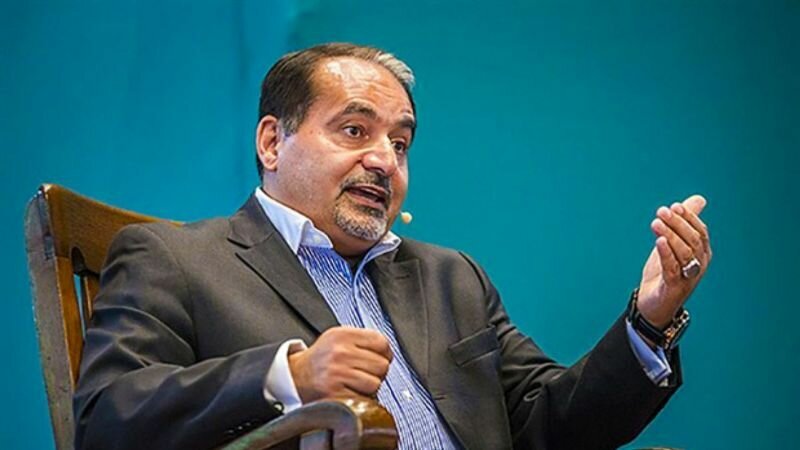TEHRAN - Hossein Mousavian, a Middle East expert who now works as a researcher at Princeton University, has described a planned visit by Japanese Prime Minister Shinzo Abe to Tehran as “positive” and said it shows effectiveness of Iran’s diplomacy.
In an interview with IRNA published on Sunday, Mousavian said that Japan’s intention to mediate between Iran and the United States is in line with the interests of the international community.
“Among the global powers, Japan is the closest international ally to the U.S. It has also relations with Iran based on mutual respect and interests and constructive cooperation. So, (Japan) is appropriate for this mission,” he pointed out.
However, the former diplomat said, Abe’s success depends on “seven factors”.
One is to convince Washington to follow principles of non-interference, mutual respect and also respect national sovereignty and territorial integrity, Mousavian stated.
“Multi-dimensional solutions have a higher chance of success. For example, security in the Persian Gulf as well as secure passage of energy from there is very vital for Japan. The Japanese prime minister can propose a long list of cooperation between the Persian Gulf states to the U.S., Iran, regional countries, world powers and the United Nations Security Council.
“Such an initiative will be within the framework of the Article 8 of the United Nations Security Council Resolution 598 that can help ease tensions between Iran and the U.S., stop the Saudi-Iranian animosity, alleviate concerns about an imminent conflict, and pave the way for regional cooperation that would be aimed at resolving current crises in the Middle East.
“Also, such an initiative will be welcomed by world powers such as China, the European Union, Russia and India,” he explained as the second factor.
Taking departure from warmongering figures in the U.S. by Trump and preventing Arab-Israeli influence on the White House’s decisions are two of the conditions that Mousavian says can help make the visit of Abe to Tehran successful.
As the third factor, Mousavian said, Trump should be able to take distance from radical war-mongering figures in the U.S. who are influential on his policies on Iran.
As the third factor, Mousavian said, Trump should be able to take distance from radical war-mongering figures in the U.S. who are influential on his policies on Iran.
“Otherwise they will block his efforts,” he noted.
Mousavian said that the fourth factor is preventing Israeli-Arab front, heading by Saud Arabia and the United Arab Emirates, from interfering in the White House’s decision-making process.
The fifth factor is that the U.S. should stop tightening sanctions and obstructing Iran’s economic relations with other countries and also return to the 2015 nuclear deal, said Mousavian who acted as a nuclear negotiator during the Khatami administration from 2003-2005.
Mousavian said that if the above mentioned factors are implemented, Tehran should also be prepared to “contain” heightened animosity with the U.S. and enter a “conciliatory” path.
“The final solution should bring about a win-win situation both for Trump and Tehran because it’s impossible that either of the sides give up to the other,” he said.
Abe will visit Tehran on June 12-14. The visit will be the first by an incumbent Japanese prime minister to Iran since 1978.
According to Bloomberg, Abe plans to meet with President Hassan Rouhani on June 12 and Leader of the Islamic Revolution Ayatollah Ali Khamenei on June 13, the Mainichi reported.
The visit is aimed at helping encourage dialogue with the U.S. and ease tensions, according to the Mainichi.
During his talks with U.S. President Donald Trump in Tokyo on May 27, Abe reiterated his intention to act as an intermediary between the U.S. and Iran.
At a joint press conference with Trump, Abe said Japan “would like to do whatever it can. Japan and the U.S. should collaborate closely so that tensions surrounding Iran are lessened and do not result in armed conflict.”
Tensions have been rising between Tehran and Washington since the U.S. withdrew from the UN-endorsed nuclear agreement in May last year and ordered sanctions on Iran.
Tensions entered a new stage since April when the U.S. designated the IRGC (part of the Iranian military) as a terrorist organization, announced that it does no renew waivers for the eight major buyers of the Iranian oil, and started beefing up its military presence in the region, particularly in the Persian Gulf.
Japan was a major buyer of Iranian oil for decades before the sanctions.


No comments:
Post a Comment